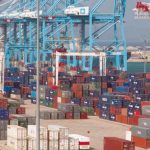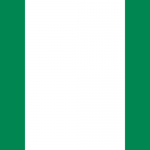Nigeria: Strong fundamentals
 Nigeria is a federal constitutional republic with 36 states which are sub-divided into 774 Local Government Areas (LGAs), and the Federal Capital Territory, Abuja. With a population of more than 155 million, Nigeria is the most populous country in Africa and the eighth most populous country in the world.
Nigeria is a federal constitutional republic with 36 states which are sub-divided into 774 Local Government Areas (LGAs), and the Federal Capital Territory, Abuja. With a population of more than 155 million, Nigeria is the most populous country in Africa and the eighth most populous country in the world.
Nigeria has six cities with a population of more than one million people, including Lagos, Kano, Ibadan, Kaduna, Port Harcourt, and Benin City. Lagos is the largest city in Sub-Saharan Africa, with a population of more than 17 million.
The three largest ethnic groups in Nigeria are the Hausa, Igbo and Yoruba. The country is about half Muslim and half Christian. The name Nigeria comes from the Niger River which runs through the country.
Nigeria is a Federal Republic modeled after the United States with executive power exercised by the president. In April 2011 Goodluck Jonathan was elected president for a four-year term. The next election will be held in April 2015.
Nigeria is classified as a mixed economy emerging market, according to the World Bank. It has an abundant supply of natural resources, as well as well-developed financial, legal, communications and transport sectors. The Nigerian Stock Exchange is the second largest in Africa.

Petroleum plays a large role in the Nigerian economy, accounting for about 16% of GDP and 80% of government earnings. Nigeria joined OPEC in 1971. The organization ranks Nigeria its second biggest crude oil exporter by volume and seventh among its 12 member nations in terms of proven crude oil reserves. In 2010, Nigeria exported 2.5 million barrels per day of crude oil, earning $71 billion from oil exports. Nigeria’s oil exports had been disrupted by years of violent campaign by militants in the main oil producing Niger Delta region.
In 2011, analysts at Citigroup listed Nigeria as one of 11 Global Growth Generators, economies which have been identified as sources of growth potential and of profitable investment opportunities.
In 2005, Goldman Sachs identified Nigeria as one of its N11 countries, states with a high potential of becoming, along with the BRICS, the world’s largest economies in the 21st century.




